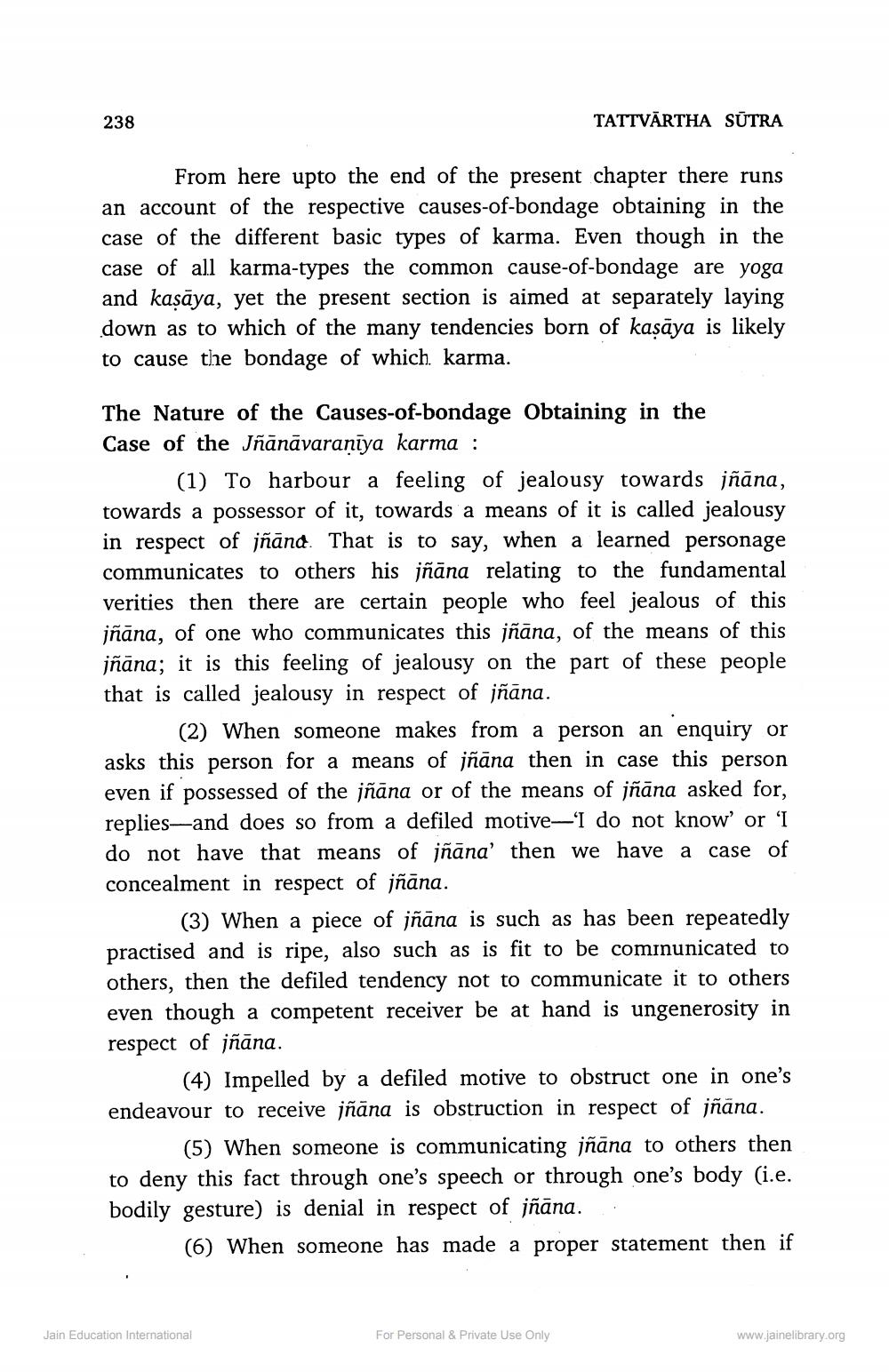________________
238
From here upto the end of the present chapter there runs an account of the respective causes-of-bondage obtaining in the case of the different basic types of karma. Even though in the case of all karma-types the common cause-of-bondage are yoga and kaṣāya, yet the present section is aimed at separately laying down as to which of the many tendencies born of kaṣāya is likely to cause the bondage of which karma.
TATTVĀRTHA SŪTRA
The Nature of the Causes-of-bondage Obtaining in the Case of the Jñānāvaraṇīya karma :
(1) To harbour a feeling of jealousy towards jñāna, towards a possessor of it, towards a means of it is called jealousy in respect of jñānd. That is to say, when a learned personage communicates to others his jñāna relating to the fundamental verities then there are certain people who feel jealous of this jñāna, of one who communicates this jñāna, of the means of this jñāna; it is this feeling of jealousy on the part of these people that is called jealousy in respect of jñāna.
(2) When someone makes from a person an enquiry or asks this person for a means of jñāna then in case this person even if possessed of the jñāna or of the means of jñāna asked for, replies and does so from a defiled motive-I do not know' or 'I do not have that means of jñāna' then we have a case of concealment in respect of jñāna.
(3) When a piece of jñāna is such as has been repeatedly practised and is ripe, also such as is fit to be communicated to others, then the defiled tendency not to communicate it to others even though a competent receiver be at hand is ungenerosity in respect of jñāna.
(4) Impelled by a defiled motive to obstruct one in one's endeavour to receive jñāna is obstruction in respect of jñāna.
(5) When someone is communicating jñāna to others then to deny this fact through one's speech or through one's body (i.e. bodily gesture) is denial in respect of jñāna.
(6) When someone has made a proper statement then if
Jain Education International
For Personal & Private Use Only
www.jainelibrary.org




